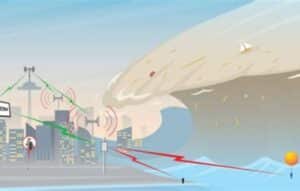The world of cars has changed dramatically over the past few decades. From the first combustion-powered models to the electric cars of the future, the automotive industry has made tremendous progress in terms of efficiency, technology, and sustainability.
In this article, we'll explore how cars have evolved, how they impact fuel consumption and the environment, and what we can expect from them in the coming years.
The cars They have been an essential part of modern life for over a century, offering a convenient form of transportation and enabling the expansion of cities and economies.
However, as technology advances, cars are changing to adapt to a more environmentally conscious world and consumer needs.
He car Traditional gasoline-powered vehicles are gradually being replaced by cleaner options, such as electric and hybrid vehicles. Throughout this transition, fuel consumption, emissions, and energy efficiency have been topics of great interest.
The evolution of the carsFrom combustion engines to electric ones
The internal combustion engine has been the mainstay of the automotive industry since the first cars were introduced. cars At the end of the 19th century, these engines have dominated the roads for over 100 years, but today they face increasing criticism due to environmental concerns and the search for more sustainable alternatives.
- Internal combustion carsGasoline or diesel engines remain the most common, but they have limited efficiency. These engines rely on fossil fuels, which are nonrenewable and have a high environmental cost. Traditional cars, although still popular due to their lower initial cost, contribute significantly to air pollution and climate change.
- Hybrid carsHybrid vehicles combine an internal combustion engine with an electric motor. This allows for greater fuel efficiency, as the electric motor helps reduce the amount of gasoline used. Additionally, hybrids produce fewer emissions than traditional cars, making them a more environmentally friendly option.
- Electric carsElectric cars are considered the future of the automotive industry. These vehicles don't rely on fossil fuels, but rather on rechargeable batteries. Although electric cars still face challenges, such as limited range and charging time, they are much more energy efficient than cars with combustion engines. Furthermore, they don't emit polluting gases, making them a key option for reducing the carbon footprint of transportation.
Why the cars are key in the change towards sustainability?
The industry of the cars plays a crucial role in reducing greenhouse gas emissions and shifting toward a cleaner future. Cars powered by internal combustion engines are a major source of CO2, contributing to climate change. With the rise of electric and hybrid cars, emissions are expected to decrease significantly.
Comparison of consumption and emissions between different types of cars
| Type of Car | City Consumption (mpg) | Highway Consumption (mpg) | CO2 emissions (g/km) |
|---|---|---|---|
| cars internal combustion | 15 | 22 | 180 |
| cars hybrid | 30 | 40 | 120 |
| cars electric | N/A | N/A | 0 |
The cars electric vehicles and the future of transportation
With increasing concern about climate change, electric cars have gained significant attention. These vehicles are not only energy-efficient but also contribute significantly to reducing air pollution.
- Advantages of electric cars:
- Energy efficiencyElectric cars are much more energy efficient than gasoline or diesel cars.
- Low emissions: Like the cars Electric cars do not burn fossil fuels and do not emit polluting gases, making them a cleaner option.
- Long-term cost reductionAlthough electric cars have a higher initial cost, the maintenance cost is much lower due to the absence of complex moving parts.
- Disadvantages and challenges:
- Limited autonomy: Although the cars While electric vehicles are improving in terms of range, some models still offer less than 300 miles per charge, which can be a drawback for long trips.
- Charging infrastructureAlthough charging infrastructure is improving, it remains a concern for many drivers, especially in rural areas.
How the cars Hybrids can help the transition
Although the cars While electric vehicles are an excellent option for the future, hybrids play a key role in the transition toward greater sustainability. Hybrid vehicles offer the best of both worlds, allowing drivers to experience greater energy efficiency without sacrificing the comfort and range of traditional cars.
- Plug-in hybrid carsPlug-in hybrids (PHEVs) offer an additional option by having an electric battery that can be charged via a power outlet. This allows drivers to take short trips using electricity alone, while the combustion engine kicks in for longer journeys.
- Non-plug-in hybrid carsTraditional hybrid cars use both a gasoline engine and an electric motor, but they can't be charged via a power outlet. Instead, the hybrid system recharges the battery using the combustion engine and regenerative braking.
The importance of technology in the cars
The future of the cars It's not just about fuel efficiency and sustainability, but also about integrating new technologies that improve safety, comfort, and the driving experience.
Some of the emerging technologies in the cars include:
- Autonomous drivingMany automakers are investing in self-driving technology. Although we're still a long way from seeing fully autonomous cars on the road, driver-assistance features, such as adaptive cruise control and automatic braking, are already available on many models.
- Connectivity technology: The cars Modern cars are equipped with advanced infotainment systems that allow drivers to connect their phones and devices to their cars to access apps, maps, and music, all while keeping their hands on the wheel.
- Improving fuel efficiency: Advances in aerodynamics, smaller, more efficient engines, and higher-capacity batteries are helping cars to consume less fuel and offer better performance.
Cars have come a long way since their early days, evolving from combustion-powered vehicles to more efficient and eco-friendly electric and hybrid models. The transition to more sustainable vehicles is crucial to reducing environmental impact and operating costs, and electric and hybrid cars play a fundamental role in this process. As technology continues to improve, the cars of the future will offer greater efficiency, lower emissions, and a more comfortable driving experience.





